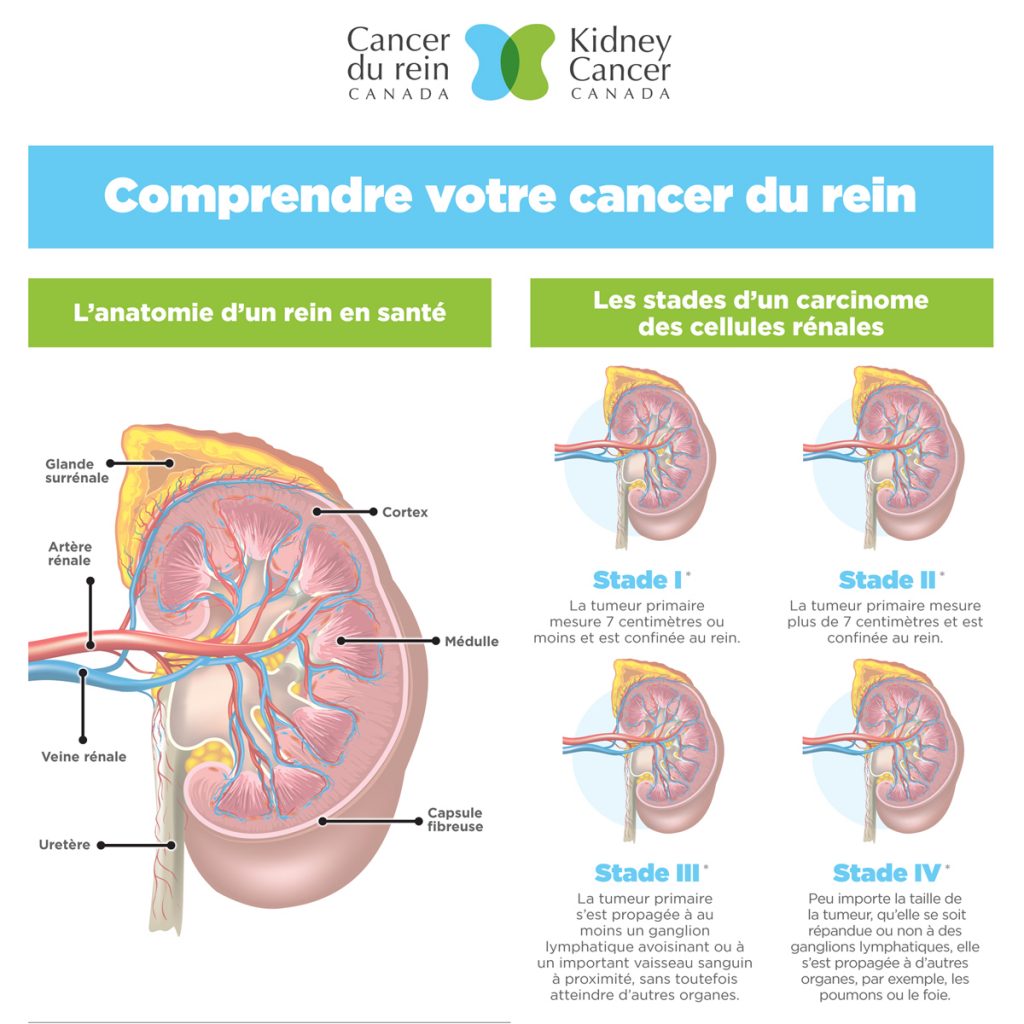For advanced kidney cancer, medical treatment options are used in addition to surgery. Medical management options may include targeted therapy, radiation therapy, or a combination of these.
Most therapies can be taken by mouth at home. Other types of therapy are given intravenously, requiring you to go to your doctor’s office or clinic to receive them. Unfortunately, there is no therapy that permanently cures kidney cancer. However, there are several therapies that can provide long-term remissions (periods where kidney cancer is dormant).
TARGETED THERAPY
Targeted therapies act on the molecular pathways (a series of actions among molecules in a cell that lead to a certain cell function) involved in the development and spread of kidney cancer. These drugs work by shrinking and slowing the growth of cancer cells and slowing the growth of blood vessels to the tumour.
Current research is focusing on continually refining the action of these targeted therapies. The type of targeted therapy prescribed will depend on the type of kidney cancer, the stage, and any previous targeted therapies used.
RADIATION THERAPY
Radiation therapy involves using a high-energy beam of radiation directly on a tumour to destroy cancer cells and shrink tumours.
TUMOUR EMBOLIZATION
When other forms of therapy cannot be used, tumour embolization represents a potential option. It consists of blocking the blood vessels that provide blood flow to the tumour. Under some circumstances, this form of therapy may help with planned surgery or may alleviate problems related to the tumour, such as pain or bleeding. Embolization may be used for the tumour situated within the kidney, as well as for metastases.
IMMUNO-ONCOLOGY
Your immune system can recognize abnormal cells and destroy them. This is the basic science behind how immuno-oncology therapy works. Immuno-oncology (IO) therapy is a new (and old) way to treat cancer by activating your immune system in the hope that it will recognize and attack your kidney cancer.
One of the earliest treatments for cancer was a kind of immune therapy. A number of other immune-type therapies have been developed, such as interferon and interleukin-2, but side effects, cost and variable benefits have limited their usefulness.
More recently, newer types of immuno-oncology or IO therapies have been proving successful in some types of cancer. For example, results from early trials of immuno-oncology for advanced skin cancer (melanoma), lung cancer and kidney cancer have been encouraging and some of these drugs have already been approved for use in Canada.
WHAT IS IMMUNOTHERAPY?
OTHER LANGUAGES
MORE INFORMATION
(The Immuno-Oncology Therapy content on this page is an adaptation from the 10-FOR-I.O. website)


























































